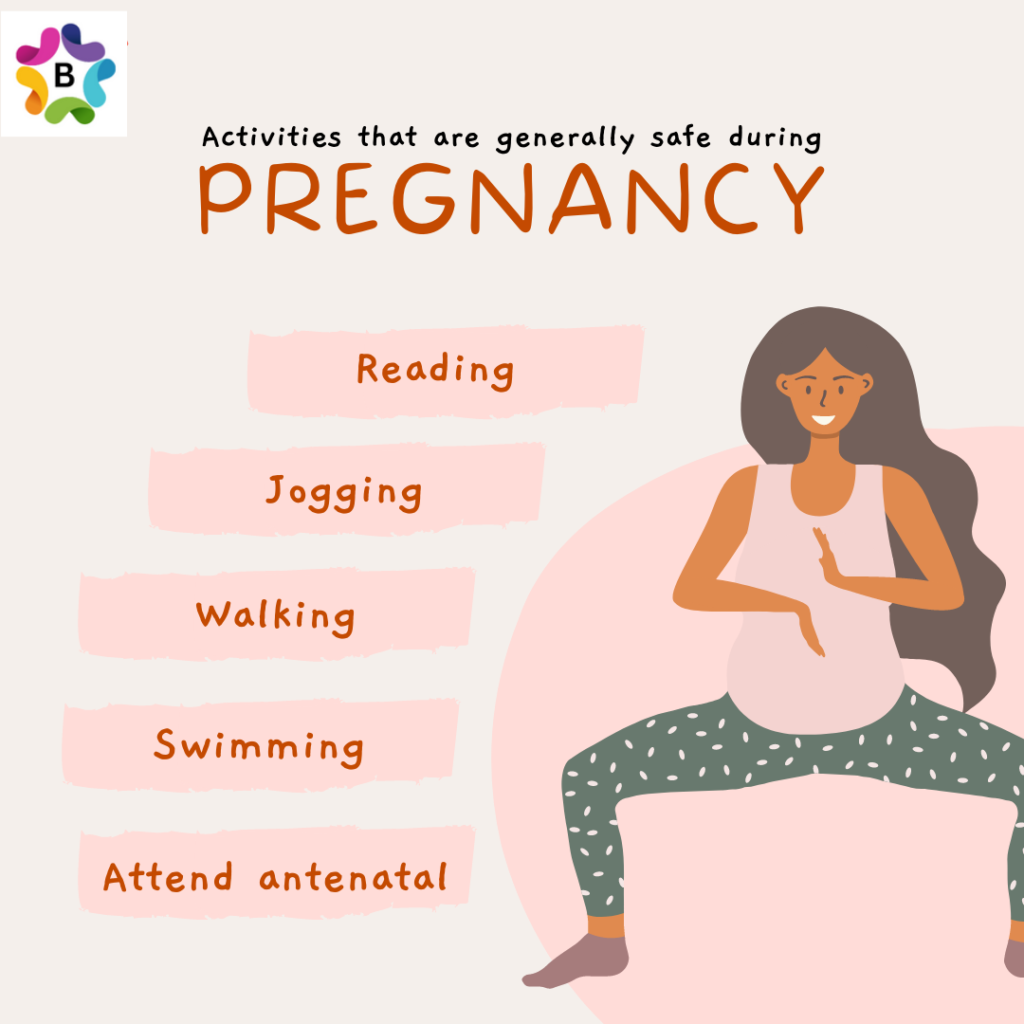Things to Avoid During Pregnancy Keep Your Pregnancy Safe
To Keep Your Pregnancy Safe it is imperative to stay away from certain foods and dangerous activities since the health and wellness of the expectant woman and the developing fetus are of utmost importance. However, most women can carry on with their regular daily activities; they just need to make a few adjustments to their lifestyles. For the mother’s and the fetus’s health, there are a number of things to avoid, including
Drinking alcohol
Alcohol can harm the growing fetus because it travels quickly from the mother’s bloodstream through the placenta and umbilical cord to the fetus. The baby may develop alcohol syndrome as a result of this. Healthcare professionals urge expecting mothers to stay away from alcohol because the safe level is still unknown. A developing fetus exposed to alcohol is more likely to develop a number of spectrum disorders, which can lead to the following health problems;
- bad growth
- developmental delays
- intellectual impairments
- anomalies of the body
Drugs
While using illegal substances is always risky, it can be especially detrimental while pregnant.
A neonate may have neonatal abstinence syndrome as a result of using illegal drugs or specific prescription medications (NAS). A newborn with NAS will experience withdrawal from drugs or alcohol.
Substance abuse can also raise the chance of stillbirth, miscarriage, and congenital defects.
Using particular drugs
Some over-the-counter (OTC) and prescription drugs should be avoided by pregnant women as they may be harmful to the fetus.
Doctors advise against taking the following medicines in order to Keep Your Pregnancy Safe
- Ibuprofen and other NSAIDs are painkillers (NSAIDs)
- most natural cures
- ACE blockers
- several anti-cold drugs (throughout the first trimester)
- certain medicines for acne
If a patient is unable to continue taking their regular prescriptions, a doctor or pharmacist can advise on which medications are safe to use and frequently suggest alternatives.
Don’t eat certain foods: Keep Your Pregnancy Safe

Pregnant women are recommended to steer clear of specific foods during pregnancy. This is because certain foods may make them feel sick or because their sense of smell may change. There are still excellent nutritional options available throughout pregnancy. The typical diets that expectant women should avoid are;
- Raw fish and meat:
These have specific bacteria like toxoplasmosis and salmonella that can infect expecting moms with foodborne illnesses. Foodborne illness can result in fever, dehydration, and an intrauterine sepsis blood infection that is harmful to the unborn child.
- Naive eggs:
Pregnant women are warned not to consume items containing uncooked eggs, such as homemade Caesar salad and unbaked cookies, because they also contain salmonella.
- Unpasteurized juice and dairy products:
These foods contain hazardous germs such as listeria, which can cause food poisoning.
- excessive caffeine
Caffeine can have the same negative effects on the fetus as alcohol does. It is advised that pregnant women consume no more than 300 mg of caffeine each day. This equates to around 1.5 daily cups of coffee. Beyond this point, the fetus may become toxic and the mother may face a high risk of miscarriage.
- Lunch meat and Deli salads:
These food items, such as prepared chicken, contain listeria, which could be harmful to the developing fetus.

High mercury content fish
Exposing a growing fetus to sharks, swordfish, and mackerel may result in brain damage, vision problems, and hearing problems.
Fish high in mercury should be avoided including:
- shark
- swordfish
- Queen Mackerel
- tuna (particularly bigeye tuna) (especially bigeye tuna)
- marlin
- from the Gulf of Mexico, tilefish
- Indigo roughy
It’s crucial to remember that only some species of fish are high in mercury.
According to the Food and Drug Administration, eating low-mercury fish while pregnant is quite healthy and can be done up to three times per week.
There are many low-mercury fish including:
- anchovies
- cod
- flounder
- haddock
- salmon
- tilapia
- trout (freshwater) (freshwater)
Salmon and anchovies are particularly ideal choices since they are rich in omega-3 fatty acids, which are crucial for the development of your unborn child.
Athletic contact
Mothers who play contact sports are more at risk for placental abruption, which is the premature separation of the placenta and uterine wall. This danger is a fatal illness that can result in miscarriage, stillbirth, or premature birth. Due to hormonal changes that cause ligaments to loosen, pregnant women are more likely to suffer an injury.
Keep Your Pregnancy Safe Avoid Smoking
Participating in smoking cigarettes while pregnant is bad for both the mother and the fetus. Smoking during pregnancy increases the risk of developing lung cancer and heart disease as well as the following problems both during and after delivery:
- placental problems
- congenital defects
- the syndrome of sudden newborn death









